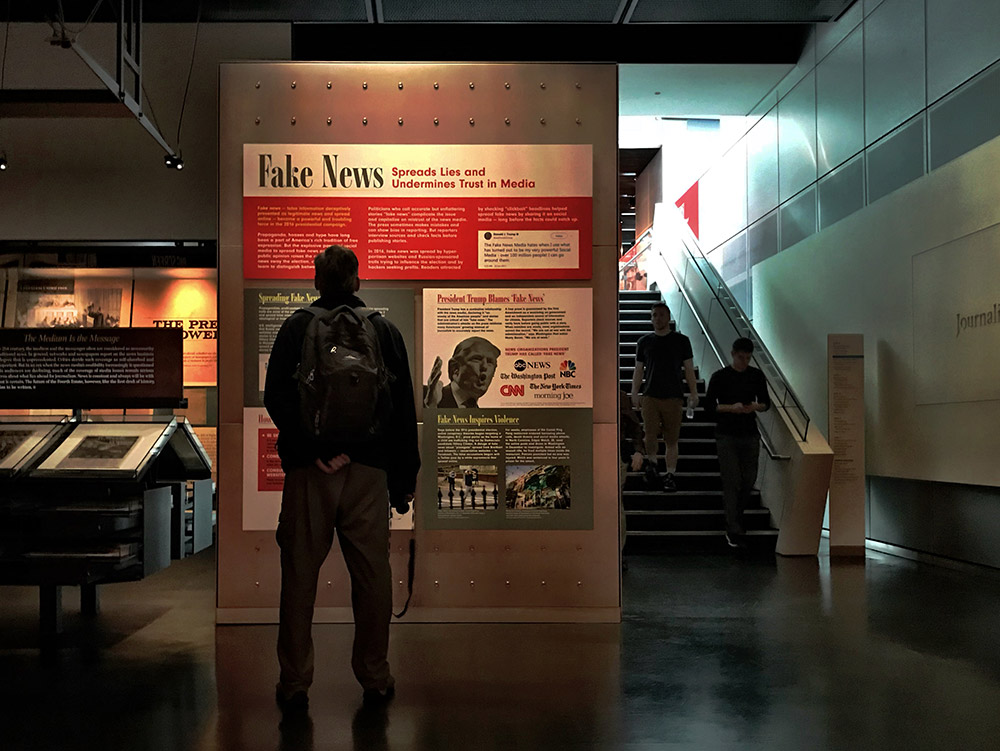Editor's note: This article was updated with a study from the Pew Research Center and Elon University.
The Week in Fact-Checking is a newsletter about fact-checking and accountability journalism, from Poynter's International Fact-Checking Network & the American Press Institute's Accountability Project.
More political faux-checking
Imitation is the highest form of flattery, right? In a sign of the growing appeal of the term "fact-checking," Czech prime ministerial candidate Andrej Babiš launched a website aping an existing fact-checking outfit's name. Unsurprisingly, its "fact checks" cast Babiš in a positive light. But will it make a difference?
Quote of the week
"Historians and students often fell victim to easily manipulated features of websites, such as official-looking logos and domain names. … Compared to the other groups, fact checkers arrived at more warranted conclusions in a fraction of the time.” — From a study by Stanford University’s Sam Wineburg and Sarah McGrew
Can we win the fact-checking arms race? It's a toss-up.
A study published this morning by Pew Research Center and Elon University asked 1,100 experts whether "the most accurate information" could one day prevail on the Internet. The answers were split almost evenly. Read the report.
Fact-checking is everywhere, but nowhere
There's been no shortage of fact-checking over the past year. But poor promotion and a lack of consistent labels by some outlets meant this reporting quickly disappears, Mark Stencel and Rebecca Iannucci of the Duke Reporters' Lab report for Poynter.
Museum of misinformation
An exhibit about fake news is now part of the Newseum's offerings in Washington, D.C. It focuses on misinformation that circulated during the U.S. presidential campaign in 2016, and offers visitors some tips to spot and stop fake news.

Some fact-checking fun
On the Late Show, comedian Stephen Colbert has a few things to say about President Trump's laments about how it's “disgusting the way the press is able to write whatever they want to write.” … Full Frontal travels to Finland to figure out why they're better at fact-checking than everyone else.
Who's messing with the fact-checkers?
Those ubiquitous ads for fake news about HGTV shows, Melania Trump and other topics have been popping up on PolitiFact and Snopes. Removing them is tricky and means a loss in revenue. The fact-checking project of the (Poynter-owned) Tampa Bay Times was also reportedly hacked last week, so that it secretly mined cryptocurrency in users' browsers. The malicious software was removed from its website after a few hours.
Are 'predatory journals' fooling you?
Africa Check explains the problem of predatory academic journals, how to identify them, and how you can avoid being duped.
Fact-checking on wheels in Mexico
The recent earthquake in Mexico had one resident riding around on her motorcycle to verify — or not — information reported on social media. She was part of a citizen “digital brigade” working to debunk rumors.
Fact, the brew
PolitiFact's community outreach efforts seem to be going particularly well in West Virginia.
If you need me I'll be here at @BlackSheepWV crying because we're having a happy hour event tonight and they NAMED A BEER IN OUR HONOR. See? pic.twitter.com/xQlGq2qXNg
— Katie Sanders (@KatieLSanders) October 18, 2017
News from the Facebook front
Facebook's "neutrality" means that it fosters a platform "where people can knowingly misinform each other." … The kids of South Park confront Mark Zuckerberg about allowing lying "on your platform." … Bloomberg tells Facebook how to prepare for the next election, including more innovative ways to identify hoaxes. … Facebook responds to the Atlantic's "What Facebook Did to American Democracy" with a promise of more attention to the "integrity of information."
New election, new fakery in Kenya
Fake news is getting more sophisticated a week before Kenyans are set to go back to the polls. PesaCheck reports that one site sent a bogus opinion poll showing the incumbent president leading his opponent.
12 quick fact-checking links
(1) Can ombudsmen help in the fight against fake news? (2) An Indiana congressman wants to license and fingerprint the “fake news” mainstream media. (3) This is how Snapchat avoids getting into fake news trouble. (4) Here are some suggestions for fighting fake news without trampling free speech. (5) Michelle Ye Hee Lee is leaving The Washington Post Fact Checker to report for the paper's political investigations team. (6) Meedan's Check program has a tool that could help surface viral hoaxes on WhatsApp. (7) Are “advertising-dependent newsrooms” reluctant to fact-check big corporations? (8) FP says a "news consumers’ movement" might be the solution to fake news. (9) That video of a little girl suffering the consequences of a screen door on a windy day was not related to Ophelia. (10) BuzzFeed is sorry but that washed coyote story was also a fake. (11) A call for papers on misinformation and disinformation, with an ironic deadline. (12) Fighting fake news, now part of the curriculum of Italian schools. (H/T Flavia Mi).
Until next week,
Looking for previous editions of this newsletter? You can find them here.







